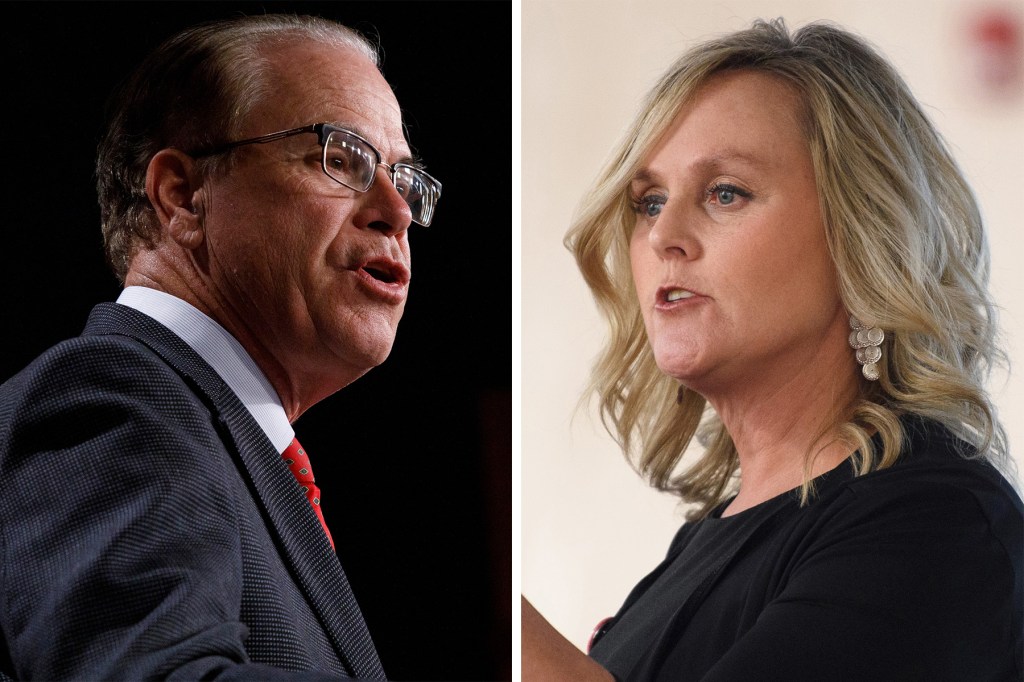The candidates for Indiana governor have addressed education largely along party lines, with Democratic candidate Jennifer McCormick releasing a more detailed plan, an Indiana University education expert said.
McCormick, who was the state’s last elected Superintendent of Public Instruction, presented a five-point plan focuses on school accountability, academic rigor and teacher salaries, according to a news release.
First, McCormick wants to focus on strong beginnings, which will prioritize Indiana’s investment in all levels of the educational journey. This includes encouraging affordable childcare to address Indiana’s childcare deserts and expanding access to pre-K education until the state has universal pre-K, according to the release.
The plan calls for holding all schools accountable by establishing a streamlined and transparent accountability platform to hold all schools to the same academic and fiscal standards, according to the release.
For teachers, the plan states the McCormick administration would fight to increase teacher pay to $60,000 a year and adjust veteran teacher salaries to reflect their non-educator peers. The McCormick administration would also protect teacher rights by protecting the freedom of teacher unions to bargain for wages and benefits, according to the release.
The plan also calls for a rigorous and comprehensive curriculum through autonomy at the local level to design a curriculum that prepares students for their pathway forward in life and “keeping politicians from deciding what books children can read,” according to the release.
Finally, the plan calls for post-high school education attainment by protecting and better funding higher education institutions and direct workforce development training programs. It will protect university tenure and respect the skilled trades’ apprenticeships and certifications.
“It’s time to stop experimenting with education, let teachers teach, pay them well, and allow students to succeed,” McCormick said in the release. “Our goal is an education system with professional teachers and accountable schools that sets students up for success, whether that means going to college, entering the skilled workforce, or joining the military.”
Republican candidate for governor and U.S. Sen. Mike Braun’s education platform advocates for school choice and a curriculum that prepares students for a career, college or the military, according to his campaign website.
Braun advocates for keeping topics like Critical Race Theory, a college-level theory that focuses on the relationship between race and ethnicity and social constructs and laws, and sexual orientation and gender identity out of classrooms.
As a former school board member, Braun also said he would protect parental rights because parents are the primary stakeholders and decision makers in their children’s lives and education.
Libertarian candidate Donald Rainwater said improving K-12 education starts with encouraging competition and innovation, according to his campaign website.
Under his issues section, he advocates for free universal school choice and wants to encourage cost-effective educational platforms that are accessible to every household.
Chris Lubienski, director of the Center for Evaluation and Education Policy at Indiana University, said McCormick’s plan focuses on education from inside the system, which isn’t surprising as she is the former Yorktown Community schools superintendent. Likewise, Braun’s plan addresses outside forces on the education system, which isn’t surprising from a former member of the Jasper School Board.
McCormick has released a more detailed plan, Lubienski said, with the raising the minimum teacher salary and universal pre-Kindergarten as the biggest parts of the proposal.
While increasing the minimum salary for teachers is a benefit, Lubienski said the result will likely be that poorer school districts will increase teacher pay, wealthier districts will likely just pay their teachers more to remain competitive so the pay gap will likely continue.
“It’ll help as far as attracting teachers to rural, under resourced districts, it doesn’t necessarily help as much when it comes to addressing inequality between districts,” Lubienski said.

To bridge the pay gap, the state could direct more resources to under resourced schools, but that would likely mean the well-resourced schools would receive less, Lubienski said. That would incentivize under resourced schools to not actually pay teachers more because the state would cover it, he said.
“It’s definitely a tricky issue,” Lubienski said.
While research has shown that universal pre-Kindergarten is an initial investment with future payoffs, Lubienski said the roadblock in Indiana for the plan will be politically as the legislature would have to approve funding for the program.
McCormick also advocates for public schools but seems to support charter schools by calling for accountability, Lubienski said.
“I think she recognizes the political realities that parents are not going to suddenly turn their back on free tuition for their kids. Instead of taking that head on, she’s asking for more accountability from schools, more transparency about how they do things like the finances and admissions policies,” Lubienski said.
The plan’s call for local control seems to speak a little to her former Republican roots, Lubienski said, but also to her time as a superintendent, when she likely enjoyed making decisions without state legislative interference.
“I think she can see both the potential and the limitations of making changes from the state capitol, especially in a state like Indiana where you have just a potpourri of charter schools, school vouchers, public schools with open enrollment, that being responsive to different concerns and different communities is useful,” Lubienski said.
Braun has said he’s looked into education savings accounts, which is a broader approach to school choice, Lubienski said. The education savings accounts have “taken off” in Republican states, Lubienski said, which instead of giving parents money to spend on tuition at a private school, it gives each child their own education savings account that can be used for many other things, like homeschooling or other lessons, like dance.
Neither candidate has addressed higher education in their plans or campaign websites, Lubienski said, which is something he would’ve liked to see them address. McCormick has made some statements about tenure, and Braun seems to focus more on the workforce pathway as opposed to higher education, he said.
